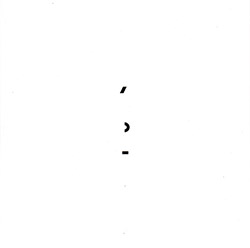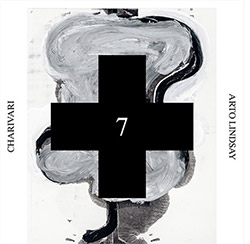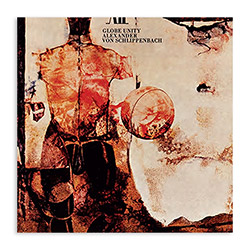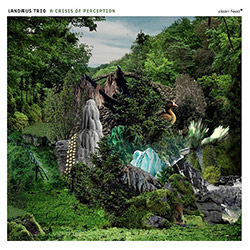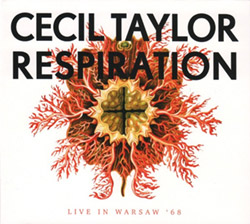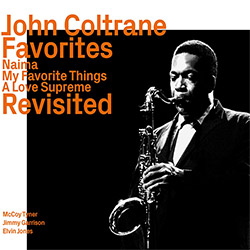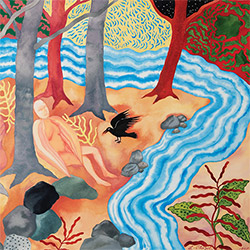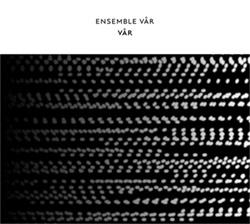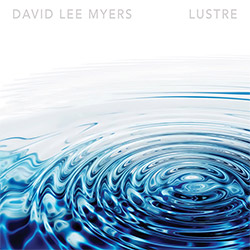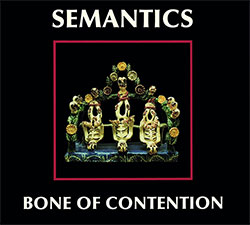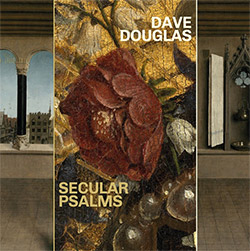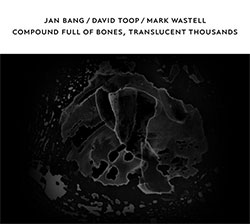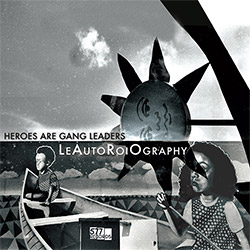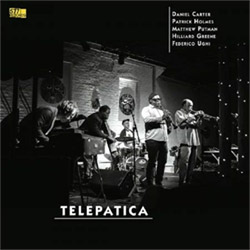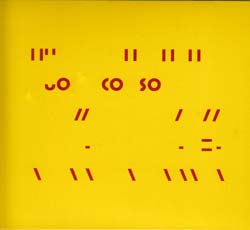
A very forward-thinking Italian composers and improvising collective from the mid-60's and early 70s noted for having Ennio Morricone on trumpet, and Frederic Rzewski appearing.
In Stock
Quantity in Basket: None
Log In to use our Wish List
Shipping Weight: 3.00 units
Sample The Album:
Mario Bertoncini-percussion, piano
Walter Branchi-bass
Franco Evangelisti-piano
John Heineman-trombone, cello
Roland Kayn-Hammond organ, vibes, marimbaphon
Egisto Macchi-percussion, celesta
Ennio Morricone-trumpet
Giovanni Piazza-horn
Jesus Villa Rojo-clarinet
Frederic Rzewski-piano
Click an artist name above to see in-stock items for that artist.
10 page insert with text in German and English
UPC: B000TRMTH6
Label: Edition Rz
Catalog ID: ed. Rz 1009
Squidco Product Code: 14137
Format: CD
Condition: New
Released: 1992
Country: Germany
Packaging: Digipack
Recordings from 1967-1975.
"Il Gruppo was a brilliant and prolific composer's collective exploring extended techniques and new sound sources through the medium of improvisation. Although very much a product of its time, their music remains timeless. They were instrumental in founding a radical tradition of western musical improvisation that owed little or nothing to anybody and created some of the strangest music ever made. They were utterly unique."-John Zorn, NYC 2006
10 page insert with text in German and English
Artist Biographies
• Show Bio for Mario Bertoncini "Mario Bertoncini - 1932 born in Rome: composer, pianist, musical constructivist. 1951-61 classical and musical studies (composition with G. Petrassi and piano with R. Caporali) in Rome; electronic music in Utrecht (G.M. Koenig). From 1956 he performs widely as concert pianist in Europe, as a soloist with orchestra (with Bruno Maderna, Daniele Paris, Mario Rossi, Paul Hupperts, Roelof Krol and others) and in recitals. 1962 price Nicola d'Atri (S. Cecilia National Academy) for SEI PEZZI PER ORCHESTRA. 1964-68 first experiments with prepared instruments (QUODLIBET, CIFRE, TUNE, SCRATCH-A-MATIC). 1965 price of the Fondation europeènne de la Culture for QUODLIBET. 1965-73 member of the improvisation group "Nuova Consonanza" in Rome. 1967-73 Professor at the State Conservatory G. Rossini in Pesaro, Italy. Music Theater; theoretic and practical work on a functional interaction of sound and gestures (SPAZIO-TEMPO, ›Note per un teatro della realtà‹). 1968 EPITAFFIO: correspondence between the action of drawing and writing a text and its sonorous result. 1970 première (Venice, Biennale d'Arte) of SPAZIO-TEMPO. Construction of his first sound objects on the priciple of the Aeolian harp. 1970-72 president of contemporary music society Nuova Consonanza, Rome. 1974 invited to Berlin as "artist in residence" of the DAAD art program; realization of the first ambitious project of open air kinetic sound-sculptures (VELE, Berliner Festwochen). 1975-76 associate professorship at the McGill University, Montréal: realisation of an experimental composition course called ›Musical Design Course‹ (founder of the MUD group, later known as SONDE). From 1980 (to 1997) professorship at the Hochschule der Künste, Berlin. 1986 co-founded the theater group VIE with Matina Schaak and Roberto Capanna; german patent of an interactive system for the transformation of dance-gestures in optical and acoustic signals called ›Choreophon‹. 1992-93 development and german patent of the ›Stabdämpfer‹ (bar mute), a special device for the preparation of stringed instruments. Combined compositional work with performing activities as a pianist: works by Scarlatti, Schönberg, Stravinsky, Satie, Messiaen, Scelsi, John Cage, Terry Riley, Morton Feldman etc. and own arrangement: Earle Brown 4 SYSTEMS; Cage CARTRIDGE MUSIC. Concert/Lectures in Germany, Italy, USA, Canada, Europe, Corea, Israel. 2004 leaves Berlin and settles in Cetona, Italy." ^ Hide Bio for Mario Bertoncini • Show Bio for Walter Branchi "Walter Branchi ( Rome, 1941) is an Italian composer, musician, writer and gardener. He is known for taking part in the New Consonance Improvisation Group between 1966 and 1975 and for the cultivation of French antique roses in the nineteenth century in a nursery of particular value in the Province of Terni. Teacher of Electronic Music Composition at Rossini Conservatory in Pesaro and at the Conservatory of Santa Cecilia in Rome. In 1967 he created Studio R7 with Franco Evangelisti, Domenico Guaccero, Egisto Macchi, Gino Marinuzzi jr., And technicians Paolo Ketoff and Guido Guiducci, and in Pesaro, the Experimental Music Electronic Laboratory (LEMS), which has been directing for six years. He has been a member of the Other group from 1973 to 1977. Together with Guido Baggiani he founded Vertical Music in 1978. He is also one of the founders of the Music / Complexion seminars in 1987 and 1996 by Harmonices Mundi He taught as "Composer in Residence" at Simon Fraser University in Vancouver. Visiting Composer at the University of Stanford (CCRMA Computer Center Research Music and Acoustic). He has lectured and performed his music at American universities such as: Wesleyan University Rhode Island School of Design, New York Greenwich House Music School. In 2012 he was "Artist in Residence" at the Ron Fleming Foundation in Newport (Rhode Island). Walter Branchi is a member of the Quaker Friends Society. In 1977 he published Electronic Music Technology, among the first books in Italy on the topic, considered a valid introductory text for electronic speech. ° In 1979, the entire composition began at the University of Princeton. He was featured at the Ear to the Earth Festival and with a new technique at the Diapason Gallery in Brooklyn. Contributor to the Music section of Unesco, he also collaborated with Ennio Morricone." ^ Hide Bio for Walter Branchi • Show Bio for Franco Evangelisti "Franco Evangelisti (January 21, 1926 - January 28, 1980) was an Italian composer specifically interested in the scientific theories behind sound. Born in Rome, Evangelisti abandoned engineering studies in order to dedicate himself to musical composition. In 1948 he became a composition student of Daniele Paris in Rome, where he also studied piano with Erich Arndt. In 1952 he moved to Germany, where he pursued advanced composition studies with Harald Genzmer at the Hochschule für Musik Freiburg (Ferrari 2001). Starting in 1960 he took part in the Darmstädter Ferienkurse für Neuen Musik, where he had the opportunity of meeting Werner Meyer-Eppler of the University of Bonn, thanks to which he began to be interested in electronic music. At the invitation of Herbert Eimert, in 1956-57 he worked in the electronic studio of the Westdeutscher Rundfunk in Cologne (Ferrari 2001). In 1957, the orchestral conductor Hermann Scherchen invited him to work in the Studio of Experimental Electroacoustics of UNESCO in Gravesano, where he became involved with biophysics and explored the possibility of directly translating brain impulses into sonic vibrations. In 1960, together with other musicians such as Francisco Pennisi and Aldo Clementi, he founded the Nuova Consonanza association and, in 1964, the improvisation group of the same name (Ferrari 2001). In 1980, after nearly twenty years' work, he finished his book Dal silenzio a un nuovo mondo sonoro (From Silence to a New Sonorous World), which has come to be regarded as "an important record of one of the most radical minds of the Italian postwar avant garde" (Ferrari 2001). He died in Rome on 28 January 1980." ^ Hide Bio for Franco Evangelisti • Show Bio for John Heineman "John Heineman is known for his work on A Quiet Place in the Country (1968), Gruppo Di Improvvisazione Nuova Consonanza (1967) and Five F*cking Fables (2003)." ^ Hide Bio for John Heineman • Show Bio for Roland Kayn "Roland Kayn 1933-2011. When it comes to creative genius, Roland Kayn, born in Reutlingen (Germany) in 1933, might be the most unjustly neglected figure in contemporary music. From 1952 to 1955 he studied organ and composition at Stuttgart's Staatliche Hochschule fur Musik, as well as scientific theory at the Technische Hochschule, undertaking further composition and analysis studies in Berlin with Boris Blacher and Josef Rufer from 1956 to 1958. In that year he won the Best Foreign Work prize at the Kairazuwa Festival in Tokyo, and further awards followed in Italy in 1962 and 1964 for his orchestral compositions Vectors I and Schwingungen. Kayn's discovery of electroacoustic sound synthesis occurred in 1953 at the mythic Westdeutscher Rundfunk Studios in Cologne, and by 1959 he'd had firsthand experience of studio work in Warsaw, Munich, Milan, Brussels and Utrecht. He freelanced in various radio stations from 1959 to 1963, when he was nominated director of New Music at Hamburg's Norddeutscher Rundfunk.In 1964 he was one of the co-founders, with Aldo Clementi and Franco Evangelisti, of the Gruppo Internazionale Nuova Consonanza, one of the first European ensembles mixing improvisation and live electronics, and in 1967 organised a simultaneous concert of works by 13 composers that included electronic, concrete, electro-instrumental, computer and cybernetic music, an event that reached its definitive form in Hamburg in 1970. In Bonn in 1975 he staged an ambitious project in which performance, music, and computer workshops took place several locations at the same time, and the following year promoted a series of simultaneous non-stop shows in Amsterdam's Van Gogh Museum based on the theme "From Carillon to Computer", during the course of which debates, seminars and computer-assisted electroacoustic music performances were held. Since 1970 Kayn was based in the Netherlands, playing an active role of the cultural department of Amsterdam's Goethe Institute, developing artistic initiatives and important concerts of contemporary music. From his student days onwards, Roland Kayn was always more influenced by data processing theory than by the work of fellow composers (no surprise then that the shock generated by his composition Aggregate in 1959 led to his being declared persona non grata by the so-called avant-garde establishment), and began using the term "cybernetics" to define his own music, in which complex networks of electronic devices follow the composer's instructions in the form of a system of signals and commands. Words such as "harmony", "melody" and "rhythm" no longer apply; the idea that a musical work should be defined in minute detail by its composer is anathema to Kayn, who insists that cybernetic music should be self-regulating, leaving behind both the narrative element and the psycho/emotional minutiae usually associated with the notions of "composer" and "art". Even the person behind the system cannot predict the final outcome, since the processes have no real epicentre, and each sound is of equal weight and importance in relation to the others. "Music is sound, and sound is self-sufficient," Kayn declares emphatically."-Massimo Ricci ^ Hide Bio for Roland Kayn • Show Bio for Egisto Macchi "Egisto Macchi (4 August 1928 - 8 August 1992) was an Italian composer. Born in Grosseto, Macchi moved to Rome to study composition, piano, violin and singing with Roman Vlad (1946-51) and Hermann Scherchen (1949-54), among others. It was around this period that he also studied literature and human physiology at La Sapienza University. From the late fifties, he began his collaboration with a group of musicians (Franco Evangelisti, Domenico Guaccero and Daniele Paris), to whom he was bound by intense friendship. Together with Domenico Guaccero, Daniele Paris and Antonino Titone, he was one of the editors of the magazine Orders, which first appeared in 1959. With Bertoncini, Bortolotti, Clementi, De Blasio, Evangelisti, Guaccero, Paris, Pennisi, and Franco Norris, he founded the Association of New Consonance in 1960. He made a frequent hand at directing the association, and he held the office of President from 1980 to 1982, and also in 1989. From the day of its conception, he followed the activity of the International Week of New Music in Palermo. After creating the Musical Theatre of Rome with Guaccero, he founded Studio R7, an experimental, electronic music laboratory born in 1967. It is in the same year that he joined Franco Evangelisti's Gruppo di Improvvisazione di Nuova Consonanza, an avant garde improvisation group which, perhaps most famously, also recruited Macchi's close friend and collaborator Ennio Morricone. In 1978, he was part of the Italian commission for the music of UNICEF, together with Luis Bacalov, Franco Evangelisti, Ennio Morricone and Nino Rota. In 1983, he created, together with Guaccero, the Institute of Voice, seeking to deal with problems related to vocal work in the field of classical music and folk music of all continents. The institute made use of new technologies in the field of electronics and cybernetics. He took over the direction of the institute after the death of his friend in 1984. Further initiatives followed. In 1984 he became one of the founders of I.R.T.E.M (Institute of Research for Musical Theatre), together with Paola Bernardi, Carlo Marinelli and Ennio Morricone. In this context he also founded the Sound Archive for Contemporary Music, of which he was the director until his death. It is with the Sound Archive that he created a series of conferences, meetings and seminars for the knowledge and diffusion of contemporary music. In his last years, he had been working with Ennio Morricone to promote the 'New Opera'. In November 1991 he completed La Bohème, a transcription for sixteen instruments and four synthesizers, and Morricone similarly adapted Tosca. Both works were ready to be staged when Macchi died in 1992.Style Macchi described his music as Dionysian and he credited this to a profound period of loss and despair: "[I experienced a] time of loss... But it was only a moment, though that lasted almost a year: a moment of silence and despair. Today I found the strength to walk" (to Titone on December 23, 1957: Titone 1980, 161). Such a feeling of rebirth is evident in the earlier work Composizione (1958) for chamber orchestra in which sounds flow from silence in the frame of a "process narrative" (Titone 1980, 43). The composer later tried his hand at serialism in Composizione no. 2, however this was an isolated attempt and Macchi soon moved on to adapt newer techniques, reassessing the formal stability that characterized his earlier works (Annibaldi 2001; Grove & Macmillan). There began a more functional use of more challenging devices, such as aleatory writing in Composizione no. 3 and the transformation of the orchestra into a chorus in Composizione no. 5 (Annibaldi 2001; Grove & Macmillan). From 1967, Macchi became absorbed in work for television and film. His typical mixtures of media and styles displayed a kind of applied experimentalism in which he reconciled the most ingenious sound research with the greatest evocative immediacy; he maintained the same kind of organisational rigour and expressiveness that was to be found in his concert music (Grove & Macmillan). His film work included the scores to Bandidos (1967), Gangsters '70 (1968), The Assassination of Trotsky (1972), Black Holiday (1973), Mr. Klein (1976), Padre Padrone (1977), Antonio Gramsci: The Days of Prison (1977), Charlotte (1981), Menuet (1982), The Malady of Love (1986), Salome (1986), and Havinck (1987)." ^ Hide Bio for Egisto Macchi • Show Bio for Ennio Morricone "Ennio Morricone was born in Rome on 10 November 1928. His long artistic career includes a wide range of composition genres, from absolute concert music to applied music, working as orchestrator, conductor and composer for theatre, radio and cinema. In 1946, Ennio received his trumpet diploma and in 1954 he received his diploma in Composition at the Conservatorio di Santa Cecilia under the guidance of Goffredo Petrassi. He wrote his first concert works at the end of the 1950s, then worked as arranger for RAI (the Italian broadcasting company) and RCA-Italy. He started his career as a film music composer in 1961 with the film Il Federale directed by Luciano Salce. World fame followed through the Sergio Leone westerns: A Fistful of Dollars (1964), For a Few Dollars More (1965), The Good, The Bad and The Ugly (1966), Once Upon a Time in The West (1968) and A Fistful of Dynamite (1971). In 1965, Morricone joined the improvisation group Nuova Consonanza. Since 1960, Morricone has scored over 450 films working with many Italian and international directors including Sergio Leone, Gillo Pontecorvo, Pier Paolo Pasolini, Bernardo Bertolucci, Giuliano Montaldo, Lina Wertmuller, Giuseppe Tornatore, Brian De Palma, Roman Polanski, Warren Beatty, Adrian Lyne, Oliver Stone, Margarethe Von Trotta, Henry Verneuil, Pedro Almodovar and Roland Joffè. His most famous films (other than the Italian westerns) include: The Battle of Algiers; Sacco and Vanzetti; Cinema Paradiso; The Legend of 1900, Malena; The Untouchables; Once Upon a Time in America; The Mission and U-Turn. His absolute music production includes over 100 pieces composed from 1946 to the present day. Titles include Concerto per Orchestra n.1 (1957); Frammenti di Eros (1985); Cantata per L'Europa (1988); UT, per tromba, archi e percussioni (1991); Ombra di lontana presenza (1997); Voci dal silenzio (2002); Sicilo ed altri frammenti (2007); Vuoto d'anima piena (2008). In 2001, Ennio Morricone began a period of intense concert activity, conducting his film music and concert works for symphony orchestra and polyphonic choir in more than 100 concerts across Europe, Asia, USA, Central and South America. During his long career, Ennio Morricone has also received many awards. As well as the Golden Lion and the honorary Oscar he was awarded in 2003, he has been presented with eight Nastri D'argento, five BAFTAs, five Oscar nominations, seven David Di Donatellos, three Golden Globes, one Grammy Award and one European Film Award. In 2009, the then President of the French Republic, Nicolas Sarkozy, also signed a decree appointing Morricone to the rank of Knight in the Order of the Legion of Honor." ^ Hide Bio for Ennio Morricone • Show Bio for Frederic Rzewski "Frederic Anthony Rzewski (born April 13, 1938 in Westfield, Massachusetts) is an American composer and virtuoso pianist. Rzewski (pronounced zheff-skee) began playing piano at age 5. He attended Phillips Academy, Harvard and Princeton, where his teachers included Randall Thompson, Roger Sessions, Walter Piston and Milton Babbitt. In 1960, he went to Italy, a trip which was formative in his future musical development. In addition to studying with Luigi Dallapiccola, he began a career as a performer of new piano music, often with an improvisatory element. A few years later he was a co-founder of Musica Elettronica Viva with Alvin Curran and Richard Teitelbaum. Musica Elettronica Viva conceived music as a collective, collaborative process, with improvisation and live electronic instruments prominently featured. In 1971 he returned to New York. In 1977 Rzewski became Professor of Composition at the Conservatoire Royal de Musique in Liège, Belgium, then directed by Henri Pousseur. Occasionally he teaches for short periods at schools and universities throughout the U.S. and Europe, including Yale University, the University of Cincinnati, the California Institute of the Arts, the University of California, San Diego, the Royal Conservatory of The Hague and Trinity College of Music, London. Many of Rzewski's works are inspired by secular and socio-historical themes, show a deep political conscience and feature improvisational elements. Some of his better-known works include The People United Will Never Be Defeated! (36 variations on the Sergio Ortega song El pueblo unido jamás será vencido), a set of virtuosic piano variations written as a companion piece to Beethoven's Diabelli Variations; Coming Together, which is a setting of letters from Sam Melville, an inmate at Attica State Prison, at the time of the famous riots there (1971); North American Ballads; Night Crossing with Fisherman; Fougues; Fantasia and Sonata; The Price of Oil, and Le Silence des Espaces Infinis, both of which use graphical notation; Les Moutons de Panurge; and the Antigone-Legend, which features a principled opposition to the policies of the State, and which was premiered on the night that the United States bombed Libya in April 1986. Among his most recent compositions, the most interesting are the Nanosonatas (2006~2010) and the Cadenza con o senza Beethoven (2003), written for Beethoven's Fourth Piano Concerto. Rzewski played the solo part in the world premiere of his piano concerto at the 2013 BBC Proms. Nicolas Slonimsky (1993) says of him in Baker's Biographical Dictionary of Musicians: "He is furthermore a granitically overpowering piano technician, capable of depositing huge boulders of sonoristic material across the keyboard without actually wrecking the instrument." " ^ Hide Bio for Frederic Rzewski
4/24/2024
Have a better biography or biography source? Please Contact Us so that we can update this biography.
4/24/2024
Have a better biography or biography source? Please Contact Us so that we can update this biography.
4/24/2024
Have a better biography or biography source? Please Contact Us so that we can update this biography.
4/24/2024
Have a better biography or biography source? Please Contact Us so that we can update this biography.
4/24/2024
Have a better biography or biography source? Please Contact Us so that we can update this biography.
4/24/2024
Have a better biography or biography source? Please Contact Us so that we can update this biography.
4/24/2024
Have a better biography or biography source? Please Contact Us so that we can update this biography.
4/24/2024
Have a better biography or biography source? Please Contact Us so that we can update this biography.
Track Listing:
1. String Quartet 4:22
2. Improvvisazione Per Cinque 7:13
3. Rkba 1675/I 5:23
4. Percussione Per Tutti 7:29
5. Mirage 4:52
6. Wenig Aber Kurz 2:08
7. NC Berlino 1969 7:47
8. Zum Schluß 6:21
9. Eflot 11:22
10. Soup 7:37
Improvised Music
European Improvisation, Composition and Experimental Forms
Staff Picks & Recommended Items
Free Improvisation
Search for other titles on the label:
Edition Rz.



